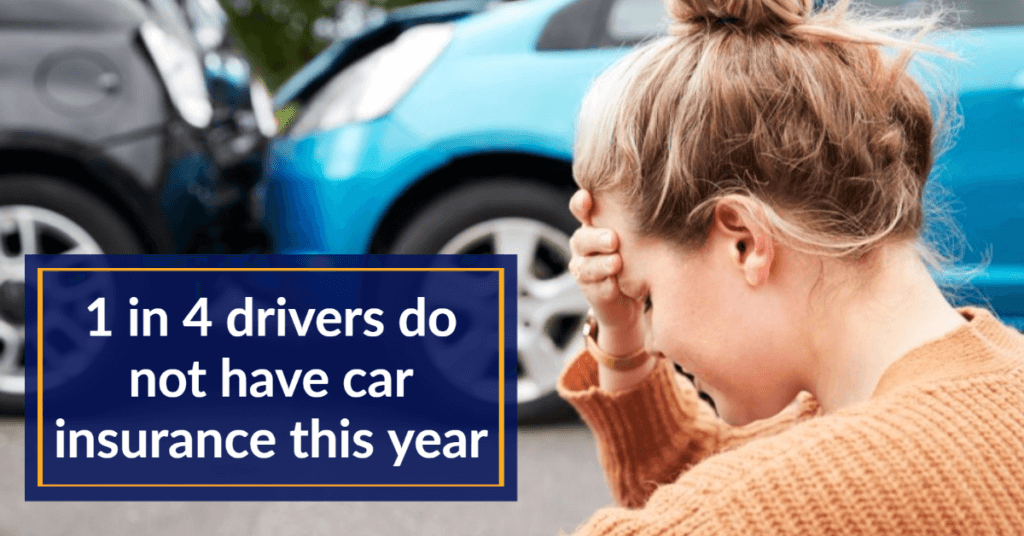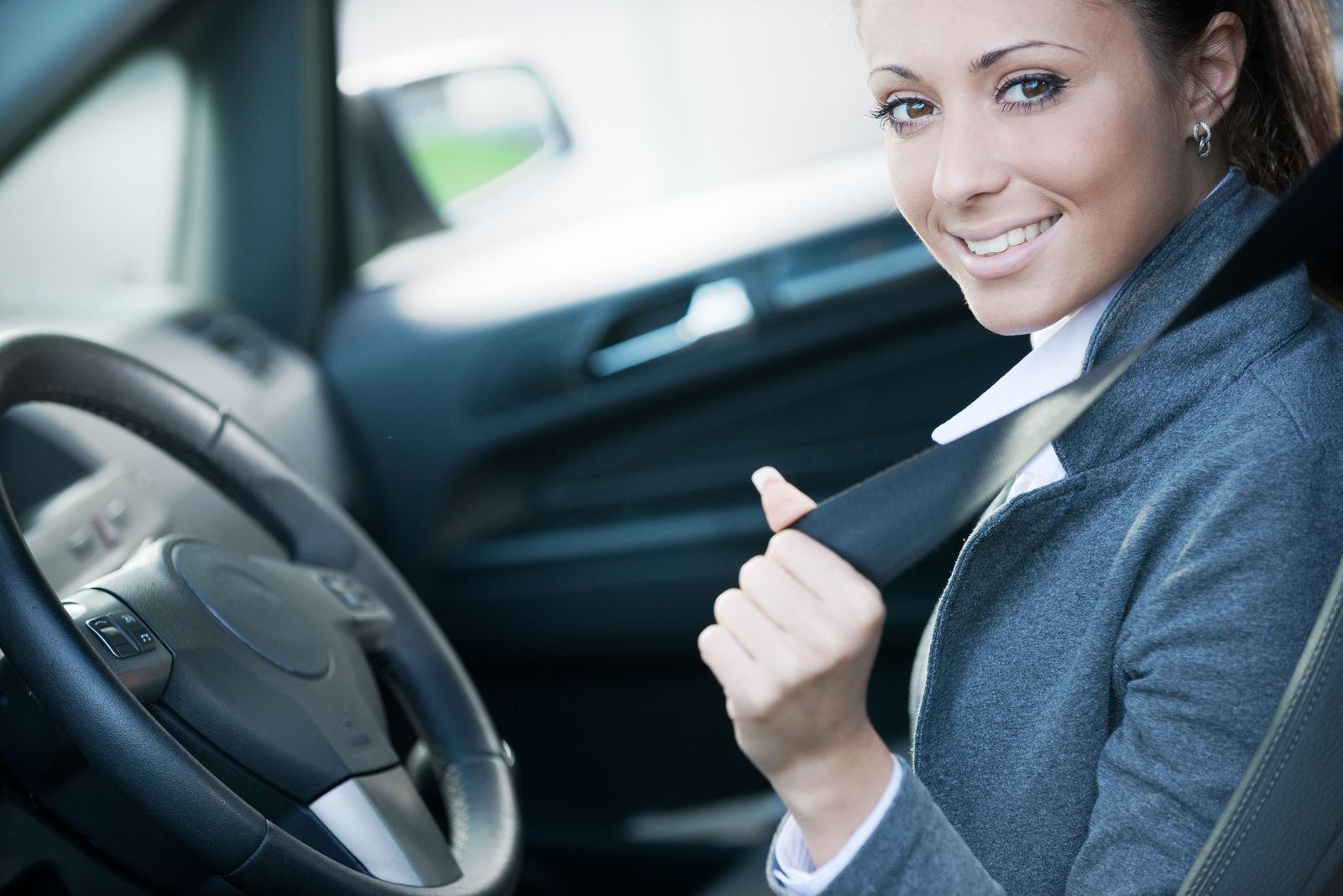Do insurance companies go after uninsured drivers? It is not uncommon for insurance companies to go after an uninsured driver following an accident. They usually do this by contacting the driver’s insurance company and asking them to file a claim on their behalf.

Uninsured drivers cause approximately 30% of all car accidents. Insurance companies use a variety of methods to determine who is driving without insurance. They may check driver’s license records, search databases for car registrations, contact local police departments, or ask customers directly. If you are caught driving without insurance, you could face a $1,000 fine and jail time.
Who Pays if the Other Driver Does Not Have Insurance?
According to the most recent statistics, the state of Illinois has over 8 million licensed drivers. Although drivers must show proof of insurance to register their vehicle, they can cancel the insurance shortly afterward. As a result, over 13% of Illinois drivers are uninsured.
Those who have insurance may not have enough coverage to cover even moderately severe injuries. The mandatory liability insurance law requires drivers to carry only $25,000 in coverage per person and $50,000 in coverage per accident. That amount is woefully inadequate if you were seriously injured. A single night in the hospital can cost tens of thousands of dollars.
Recommended: Healthcare Jobs Near Me: Application Requirements And Guidelines
One unfortunate statistic is that drivers who do not have insurance appear to be more accident-prone than those who do. Uninsured motorists are 72% more likely to be involved in an accident than insured motorists.
Uninsured drivers are typically discovered when they are pulled over for a moving violation. If they do not have proof of insurance, they may be fined up to $1,000 and have their registration and driver’s license suspended.
Every year, Illinois attempts to enforce the insurance requirement by sending out approximately 300,000 random audit letters requiring people to show proof of insurance. If they do not comply, their registration and driving privileges may be suspended.
Types of Accidents for Which You Can Collect Under Your Uninsured Motorist/Driver Policy
Not all accidents involving uninsured drivers are covered. There is no coverage if another vehicle cuts you off the road, causing you to run off the road and have an accident, such as hitting a tree, rolling your car, or landing in a ditch, but the other vehicle had no physical contact with your vehicle.
Do insurance companies chase down uninsured motorists and drivers?
Insurance companies will only pursue an uninsured driver if you have collision, comprehensive, or uninsured motorist coverage.
If you are in an accident with an uninsured driver, your insurance company may decide to pursue the at-fault uninsured driver to recoup your claim. However, your own collision, uninsured motorist, or personal injury protection insurance is usually the best way to cover your expenses.
According to the Insurance Research Council, one in every eight drivers (12.6%) did not have liability insurance in 2019. However, this is only the national average; some states have even higher rates of uninsured drivers.
Therefore, knowing what to do after being in an accident with an uninsured driver could be critical to the outcome of your claim. That’s why this post has gathered everything you need to know.
Can insurance companies go after uninsured drivers and motorists?
Yes. This is referred to as subrogation, or the insurance company’s legal right to pursue a third party for any insurance losses their customers suffered. They can recover the amount they paid you to cover your claims through subrogation.
Usually, if you have uninsured motorist coverage and file a claim, your insurance company will usually compensate you for your losses before seeking compensation from the third party who caused the losses.

When would insurance companies go after uninsured drivers?
While subrogation is a legal right that most insurance companies have, it does not always imply that they will expend the time and resources required to pursue an uninsured driver.
Insurance companies will only pursue uninsured at-fault drivers if their policyholder has the following coverage:
#1. Collision Insurance Coverage
If you are involved in an accident with another vehicle or object, collision coverage will assist you in paying for the damages, regardless of who is at fault. Collision coverage is not required by law, but it is always a good idea because it ensures that you will not be saddled with a large maintenance bill following an accident, even if you are at fault.
The collision insurance provides coverage for a wide range of claims, including:
- Collision with another vehicle: Collision coverage will pay for your damages in the event of a collision involving two or more vehicles.
- hit a stationary object: collision coverage will cover you if you hit a stationary object, such as a street sign, guardrails, trees, or fire hydrants.
- Rollovers
- Accidents involving hit-and-run vehicles
However, depending on your policy, you may be required to pay a deductible before insurance will cover the rest of the cost. It is important to note that collision insurance does not cover medical expenses.
#2. Uninsured Motorist Coverage (UM)
If you are unfortunate enough to be involved in an accident with an uninsured driver, this coverage will protect you from having to bear your losses. UM coverage reimburses you for expenses incurred as a result of an accident caused by an uninsured driver, less your deductible.
The following claims are covered by uninsured motorist coverage:
- Medical bills: any and all medical expenses, from stitches to major surgery.
- Lost wages: If you are unable to work as a result of your car accident injury, you may be compensated for your lost wages.
- Funeral expenses: Funeral expenses are also an eligible claim if a death is caused by an uninsured driver.
- Property damage: any damage to your property, such as your vehicle, yard, fence, or home, can be claimed.
- Vehicle repairs/replacement: You can file a UM claim to have your car repaired or replaced if it was totaled in an accident.
#3. Underinsured motorist coverage (UIM)
In some cases, you may be the victim of someone who has insurance but not enough to cover all of your expenses. Underinsured motorist coverage (UIM) will pay for any gaps in the at-fault party’s insurance.
For example, if the at-fault driver only has the bare minimum of liability insurance, such as $10,000 for property damage, but your repairs end up costing you $15,000, the at-fault driver is liable. UIM will pay the remaining difference, saving you from having to pay out of pocket.
Do Insurance companies Go After Uninsured Drivers?
Important Note: Insurance companies will only go after uninsured drivers who are at fault only if you have collision coverage, uninsured motorist coverage, and/or underinsured motorist coverage.
How Do UM and UIM coverage work?

Some states require you to have one or both of these insurance policies in order to be protected. Failure to carry the minimum amount of insurance required can result in penalties such as fines and license suspension.
There are two kinds of uninsured and underinsured motorist coverage:
- Bodily injury liability: intended to cover medical costs resulting from an accident with an at-fault driver who does not have enough insurance coverage or has fled the scene. This portion will cover hospital stays, doctor’s visits, lost wages, and other expenses.
- Property damage liability: This is intended to cover material losses such as physical damage to your car, home, lawn, fence, and other related property damage.
However, the amount you can claim for UM and UIM is limited, as defined in the details of your policy. Regardless of your limits, you must submit your UM or UIM claims within a certain time frame—often as little as 30 days, but this varies by policy.
More so, if you miss the deadline, you may not be reimbursed by your insurance company, even if you are the victim of an accident caused by an uninsured or underinsured driver.
Is it worthwhile to sue uninsured drivers?
If you don’t have UM or UIM and are injured in an at-fault accident caused by an uninsured driver, you can still sue the driver for personal injury. Many personal injury lawyers offer free legal consultations so you can get their advice before deciding to file a lawsuit.
However, filing this type of lawsuit may not be in your best interests. If the at-fault driver does not have car insurance, they will most likely be unable to pay for your damages and medical bills. However, depending on the state, there is a 30-day to two-year filing deadline if you choose to take action.
Is it worthwhile to sue uninsured drivers?
If you don’t have UM or UIM and are injured in an accident caused by an uninsured driver, you can still sue the driver for personal injury. Many personal injury attorneys offer free legal consultations, so you can get their advice before deciding to file a lawsuit.
Having said that, pursuing this type of lawsuit may not be in your best interests. If the at-fault driver cannot afford car insurance, they will most likely be unable to pay for your damages and medical bills. However, depending on the state, there is a 30-day to two-year filing deadline if you decide to take action.
If the defendant is found guilty, they will most likely reimburse you through a payment plan. You will then pay your lawyer’s legal fees, or they will take a percentage of the money from the defendant.
What to do if you are involved in an Accident
Regardless of the type of accident, it can be stressful and traumatic. As soon as it is safe to do so, contact your insurance company. If an uninsured or underinsured driver is involved, the sooner you begin, the better the outcome.
Therefore, if you decide to file an insurance claim, you will also need to have evidence to back up your testimony.
If you are involved in an accident, follow these steps:
- Call the police for assistance and an official police record.
- Document the scene, including any vehicle damage. Take pictures!
- Gather witnesses so you can ask them what they saw and get their contact information.
- Obtain your medical report if you are treated by medical personnel.
- Keep all receipts to claim your accident-related expenses.
Collecting as much evidence as possible will assist your insurance company in evaluating the accident and ensuring you are adequately compensated.
Conclusion
Do insurance companies go after uninsured drivers? As you have seen from the passage above,. For insurance companies to go after uninsured Drivers depends on some circumstances as listed above.
However, insurance companies will only go after uninsured drivers who are at fault if they have collision coverage, uninsured motorist coverage, and/or underinsured motorist coverage.
Was that helpful?
Share your thoughts with us in the comment box below. Stay safe and drive carefully.


Leave a Reply